Any of our over 150 courses can be purchased individually for only $25. Add a second course for only $20 and 3 or more courses for an even bigger discount.
Please note: all our courses are included in the Full Subscription.
Showing all 66 results
CardioVillage provides Continuing Education credit with fully accredited content developed by board-certified Internal Medicine physicians. Physicians, Nurses, Advanced Practitioners, Echocardiographers and other healthcare providers will all benefit from our mobile-friendly, relevant, and engaging learning content.
You can use the Search field or Category Filters at left to find the courses most relevant to your needs and register to get started today.
Disclosures note: See individual course for author disclosures. Project Team disclosures are found here.
Any of our over 150 courses can be purchased individually for only $25. Add a second course for only $20 and 3 or more courses for an even bigger discount.
Please note: all our courses are included in the Full Subscription.

Description: This course follows a patient diagnosed with Arrhythmogenic Right Ventricular Cardiomyopathy (ARVC), and highlights the background, pathophysiology, clinical manifestions, diagnosis, risk stratification, and management of ARVC. The course is developed from a Cath Lab patient case presentation and includes audio files of discussion about the case between meeting attendees.
Authors: Nicholas Ashur, MD
Credit/contact hours: .25
Estimated time to complete: 20 Minutes
Publication Date: August 18, 2023
Expiration Date: August 18,, 2026

Description: This patient case-based course focuses on constrictive pericarditis diagnosis, hemodynamics, and some of the differences between it and other diseases. The course is developed from a Cath Lab patient case presentation and includes audio files of discussion about the case between meeting attendees.
Authors: Patrick Stafford, MD
Credit/contact hours: .25
Estimated time to complete: 20 Minutes
Publication Date: August 18, 2023
Expiration Date: August 18,, 2026

Description: This course provides an excellent background review of the issues related to cardioversion and anticoagulation in the acute setting. It is important to distinguish these acute issues from the role of anticoagulation in patients with chronic atrial fibrillation over the longer term.
Authors: Author: Ashley Viars, AG-ACNP
Credit/contact hours: .5
Estimated time to complete: 30 Minutes
Publication Date: August 18, 2023
Expiration Date: August 18,, 2026
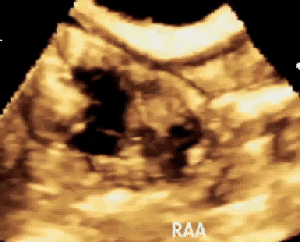
Description: 3D ultrasound was initially developed for use in transesophageal echocardiography, but is still in its infancy.
Authors: Robert H Thiele, MD
Credit/contact hours: .25
Estimated time to complete: 15 minutes
Publication Date: July 9, 2019
Expiration Date: July 9, 2025

Description: This course follows a patient diagnosed with Arrhythmogenic Right Ventricular Cardiomyopathy (ARVC), and highlights the background, pathophysiology, clinical manifestions, diagnosis, risk stratification, and management of ARVC. The course is developed from a Cath Lab patient case presentation and includes audio files of discussion about the case between meeting attendees.
Authors: Nicholas Ashur, MD
Credit/contact hours: .25
Estimated time to complete: 20 Minutes
Publication Date: August 18, 2023
Expiration Date: August 18,, 2026

Description: This patient case-based course focuses on constrictive pericarditis diagnosis, hemodynamics, and some of the differences between it and other diseases. The course is developed from a Cath Lab patient case presentation and includes audio files of discussion about the case between meeting attendees.
Authors: Patrick Stafford, MD
Credit/contact hours: .25
Estimated time to complete: 20 Minutes
Publication Date: August 18, 2023
Expiration Date: August 18,, 2026
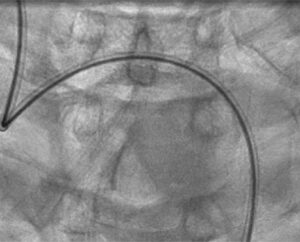
Description: An image can be worth a thousand words. In this course, we review an image of a right coronary catheter accessing the aorta via a right radial artery approach and discuss issues, concerns, and potential solutions for radial artery catheterization.
Authors: Lawrence Gimple, MD and Michael Ragosta III, MD
Credit/contact hours: .25
Estimated time to complete: 15 minutes
Publication Date: May 10, 2018
Expiration Date: May 9, 2027
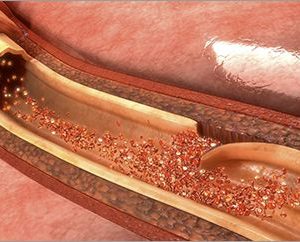
Description: Acute aortic dissection is an uncommon but highly lethal condition. With modern diagnostic and therapeutic surgical, endovascular, and medical therapies, there is new hope for many of these patients. In this Top 10 exercise, we identify the important diagnostic and therapeutic options for many patients. Note: This course is eligible for ACPE credit.
Authors: Michael Ragosta III, MD
Credit/contact hours: .5
Estimated time to complete: 30 minutes
Publication Date: March 8, 2018
Expiration Date: March 7, 2027
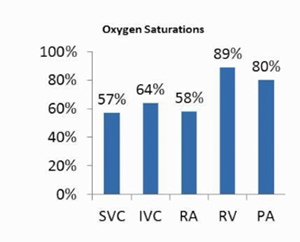
Description: Acute Ventricular Septal defect (VSD) complicating acute inferior myocardial infarction is an unusual and frequently lethal complication of myocardial infarction. Note: This course is eligible for ACPE credit.
Authors: Multiple Authors
Credit/contact hours: .5
Estimated time to complete: 30 minutes
Publication Date: July 9, 2019
Expiration Date: July 9, 2025

Description: Coronary angiography is probably the most critical aspect of cardiac catheterization and is required in multiple clinical settings. Patients may present with stable chest pain syndromes, acute coronary syndromes, or life-threatening myocardial infarction, with other cardiac abnormalities such as valvular heart disease, or with other non-cardiac conditions requiring knowledge of coronary anatomy for safe management.
Authors: Michael Ragosta III, MD
Credit/contact hours: .75
Estimated time to complete: 45 minutes
Publication Date: March 8, 2018
Expiration Date: March 7, 2027

Description: The purpose of this course is to introduce the reader to ultrasound modalities not commonly utilized by anesthesiologists and intensivists but which can still be valuable in the perioperative period (e.g. transthoracic echocardiography, epicardial ultrasound).
Authors: Robert H Thiele, MD
Credit/contact hours: .25
Estimated time to complete: 15 minutes
Publication Date: October 2, 2018
Expiration Date: October 1, 2027
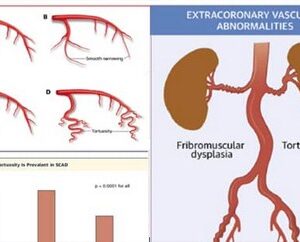
Description: Modern care for acute ST-Elevation Myocardial Infarction (STEMI) involves rapid mobilization of cardiology resources including patient evaluation and transfer to a capable cardiac catheterization laboratory for coronary angiography and, when appropriate, for coronary intervention with stenting of the occluded infarct artery. Note: This course is eligible for ACPE credit.
Authors: Elona Rrapo Kaso, MD and Lawrence Gimple, MD
Credit/contact hours: .5
Estimated time to complete: 30 minutes
Publication Date: July 11, 2018
Expiration Date: July 24, 2027

Description: Other modules in the Skills series describe how to create a process map to identify opportunities to build a better process. Once you have a map, you will have analyzed it to identify problems delays, gaps, confusion, variation, and waste. Next you will need to analyze further to understand the root causes and contributing factors for these problems. Without this deeper understanding, it would be premature to begin developing solutions. In this module, we explore techniques to tease out the underlying causes of process and systems problems that will give you confidence about where to focus your efforts as you redesign your process for the future. Note: This course is eligible for ACPE credit.
Authors: Katharine Schlag, MSN, RN, John Voss, MD
Credit/contact hours: .5
Estimated time to complete: 30 minutes
Publication Date: March 19, 2020
Expiration Date: March 19, 2026
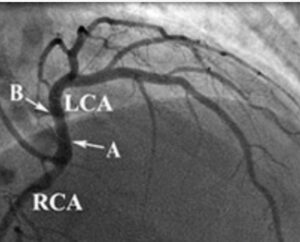
Description: In this case, a patient presents for pre-operative evaluation prior to a neuro-surgical spinal operation. He has a history of coronary heart disease and a known anomaly of the left coronary artery from the right coronary artery.
Authors: Travis Moss, MD
Credit/contact hours: .5
Estimated time to complete: 30 minutes
Publication Date: July 11, 2018
Expiration Date: July 10, 2027
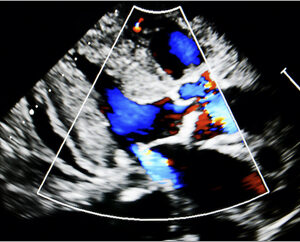
Description: Aortic regurgitation can result from a number of different mechanisms and can be life threatening when severe. In some patients, aortic regurgitation progresses slowly over many years and the appropriate timing of surgery must be determined. Note: This course is eligible for ACPE credit.
Authors: Andrew E Darby, MD
Credit/contact hours: .25
Estimated time to complete: 20 minutes
Publication Date: March 8, 2018
Expiration Date: March 7, 2027

Description: This course follows a patient diagnosed with Arrhythmogenic Right Ventricular Cardiomyopathy (ARVC), and highlights the background, pathophysiology, clinical manifestions, diagnosis, risk stratification, and management of ARVC. The course is developed from a Cath Lab patient case presentation and includes audio files of discussion about the case between meeting attendees.
Authors: Nicholas Ashur, MD
Credit/contact hours: .25
Estimated time to complete: 20 Minutes
Publication Date: August 18, 2023
Expiration Date: August 18,, 2026

Description: This patient case-based course focuses on constrictive pericarditis diagnosis, hemodynamics, and some of the differences between it and other diseases. The course is developed from a Cath Lab patient case presentation and includes audio files of discussion about the case between meeting attendees.
Authors: Patrick Stafford, MD
Credit/contact hours: .25
Estimated time to complete: 20 Minutes
Publication Date: August 18, 2023
Expiration Date: August 18,, 2026

Description: Coronary angiography is probably the most critical aspect of cardiac catheterization and is required in multiple clinical settings. Patients may present with stable chest pain syndromes, acute coronary syndromes, or life-threatening myocardial infarction, with other cardiac abnormalities such as valvular heart disease, or with other non-cardiac conditions requiring knowledge of coronary anatomy for safe management.
Authors: Michael Ragosta III, MD
Credit/contact hours: .75
Estimated time to complete: 45 minutes
Publication Date: March 8, 2018
Expiration Date: March 7, 2027
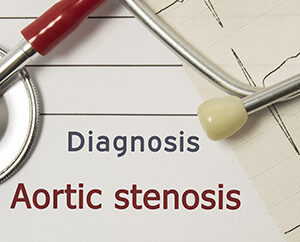
Description: Severe aortic stenosis has a poor prognosis with intervention and there is currently a Class I indication to treat. The clinical challenge is determining the best mode of intervention. Currently there are three options: medical therapy, Transcatheter Aortic Valve Replacement (TAVR) and open Surgical Aortic Valve Replacement (SAVR).
Authors: Kenan W Yount, MD, MBA; Marissa Donatelle, MD
Credit/contact hours: .5
Estimated time to complete: 30 Minutes
Publication Date: November 29, 2021
Expiration Date: November 29, 2027
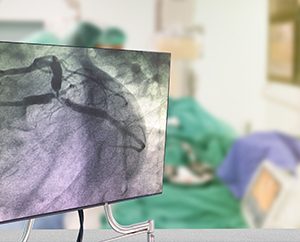
Description: Coronary angiography is the definitive “gold standard” clinical technique for evaluating coronary anatomy and bypass grafts in many patients. The laboratory and catheters provide a platform for coronary intervention and revascularization.
Authors: Michael Ragosta M.D.
Credit/contact hours: .5
Estimated time to complete: 30 Minutes
Publication Date: July 12, 2021
Expiration Date: July 24, 2027
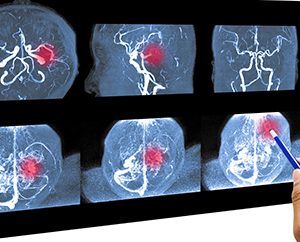
Description: In this lesson we will apply our knowledge of coronary anatomy and coronary angiography to patients who have previously undergone coronary artery bypass grafting (CABG). Venous and arterial bypass grafts each have unique issues related to optimal imaging and interpretation of findings in a clinical context.
Authors: Michael Ragosta, M.D.
Credit/contact hours: .25
Estimated time to complete: 20 Minutes
Publication Date: July 12, 2021
Expiration Date: July 24, 2027

Description: This course provides an excellent background review of the issues related to cardioversion and anticoagulation in the acute setting. It is important to distinguish these acute issues from the role of anticoagulation in patients with chronic atrial fibrillation over the longer term.
Authors: Author: Ashley Viars, AG-ACNP
Credit/contact hours: .5
Estimated time to complete: 30 Minutes
Publication Date: August 18, 2023
Expiration Date: August 18,, 2026
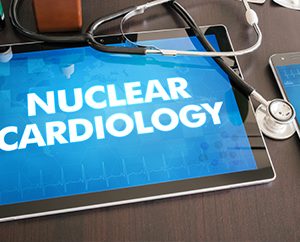
Description: Reading nuclear cardiology images requires experience, skill, and judgment. Review these classic introductory cases with Dr. Jamieson Bourque.
Authors: Dr. Jamieson Bourque
Credit/contact hours: .5
Estimated time to complete: 30 Minutes
Publication Date: March 11, 2021
Expiration Date: March 10, 2027
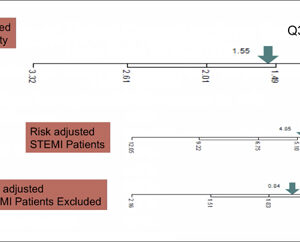
Description: Percutaneous coronary interventions are life-saving methods for many patients presenting with coronary or cardiac disease. Meticulous technique and attention to detail are of utmost importance. Many patients present with complex anatomy, difficult clinical scenarios, or challenging problems. In this lecture, Dr. Ragosta describes the risk factors, complications, and therapeutic responses that can occur during PCI.
Authors: Michael Ragosta III, MD
Credit/contact hours: 1
Estimated time to complete: 60 minutes
Publication Date: March 8, 2018
Expiration Date: March 7, 2027
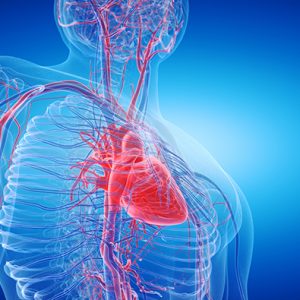
Description: A major group of coronary anomalies includes anomalies of intrinsic coronary arterial anatomy.
Authors: Michael Ragosta III, MD
Credit/contact hours: .25
Estimated time to complete: 15 minutes
Publication Date: May 14, 2021
Expiration Date: May 13, 2027

Description: The focus of this tutorial is anomalies of the coronary arteries. The incidence of coronary anomalies and their clinical relevance will be reviewed. A wide variety of anomalies have been described and the most commonly observed anomalies will be classified. Finally, specific examples of coronary anomalies and the technical issues regarding coronary angiography will be discussed.
Authors: Michael Ragosta III, MD
Credit/contact hours: .25
Estimated time to complete: 20 Minutes
Publication Date: May 14, 2021
Expiration Date: May 13, 2027
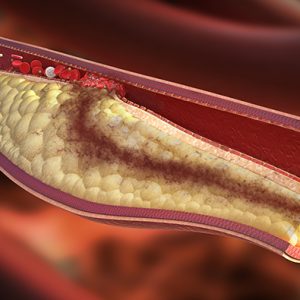
Description: The focus of this tutorial is anomalies of the coronary arteries. The incidence of coronary anomalies and their clinical relevance will be reviewed. A wide variety of anomalies have been described and the most commonly observed anomalies will be classified. Finally, specific examples of coronary anomalies and the technical issues regarding coronary angiography will be discussed
Authors: Michael Ragosta III, MD
Credit/contact hours: .25
Estimated time to complete: 20 Minutes
Publication Date: May 14, 2021
Expiration Date: May 13, 2027
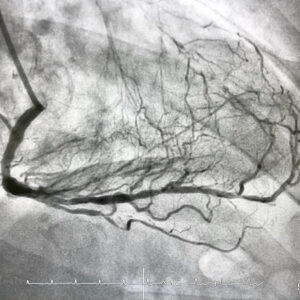
Description: In this course, we will discuss the clinical significance of coronary collaterals as they relate to patients with coronary heart disease.
Authors: Michael Ragosta III, MD
Credit/contact hours: .25
Estimated time to complete: 20 Minutes
Publication Date: February 15, 2022
Expiration Date: February 15, 2028
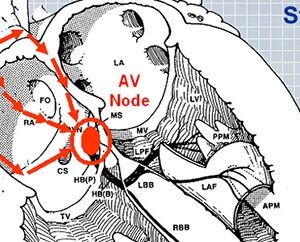
Description: Electrocardiography is typically the first cardiac test ordered in adult and pediatric patients presenting with potential cardiac abnormalities. Pediatric patients have unique physiology that rapidly changes from fetal to infant ages and then throughout childhood. These physiologic changes are reflected by changes in the electrocardiogram. In this lesson, we will review the basic principles and findings on the pediatric electrocardiogram.
Authors: Jeff Vergales MD, Jeremy Middleton MD, Michael McCulloch MD
Credit/contact hours: .25
Estimated time to complete: 20 minutes
Publication Date: Oct 20, 2020
Expiration Date: Oct 20, 2026
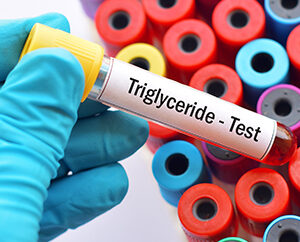
Description: Lipid management in coronary heart disease has largely focused on reduction in LDL cholesterol with compelling clinical data in this regard. Triglycerides, however, are emerging as an important target for lipid management as more is learned about the details of lipid physiology.
Authors: S. Maggie Spriggs, DNP FNP-C CCRN
Credit/contact hours: .75
Estimated time to complete: 45 Minutes
Publication Date: November 29, 2021
Expiration Date: November 29, 2027

Description: In this course, we explore our clinically relevant knowledge of heart disease in women and describe the current thinking regarding the history, appropriate diagnostic testing, and the treatment of coronary disease in women. Note: This course is eligible for ACPE credit.
Authors: Darla Topley, DNP, AGACNP, CNS
Credit/contact hours: .5
Estimated time to complete: 35 Minutes
Publication Date: February 15, 2022
Expiration Date: February 15, 2028

Description: Acute aortic dissection is an uncommon but highly lethal condition. With modern diagnostic and therapeutic surgical, endovascular, and medical therapies, there is new hope for many of these patients. In this Top 10 exercise, we identify the important diagnostic and therapeutic options for many patients. Note: This course is eligible for ACPE credit.
Authors: Michael Ragosta III, MD
Credit/contact hours: .5
Estimated time to complete: 30 minutes
Publication Date: March 8, 2018
Expiration Date: March 7, 2027

Description: Acute Ventricular Septal defect (VSD) complicating acute inferior myocardial infarction is an unusual and frequently lethal complication of myocardial infarction. Note: This course is eligible for ACPE credit.
Authors: Multiple Authors
Credit/contact hours: .5
Estimated time to complete: 30 minutes
Publication Date: July 9, 2019
Expiration Date: July 9, 2025

Description: Aortic regurgitation can result from a number of different mechanisms and can be life threatening when severe. In some patients, aortic regurgitation progresses slowly over many years and the appropriate timing of surgery must be determined. Note: This course is eligible for ACPE credit.
Authors: Andrew E Darby, MD
Credit/contact hours: .25
Estimated time to complete: 20 minutes
Publication Date: March 8, 2018
Expiration Date: March 7, 2027
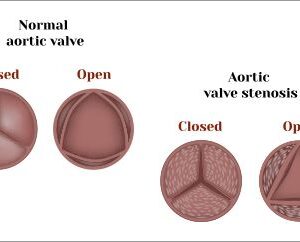
Description: This lecture covers the large and complex topic of aortic stenosis. In this lecture, Dr. Ragosta discusses the natural history of the disease, typical clinical and hemodynamic findings, and cath lab management of patients with aortic stenosis. Note: This course is eligible for ACPE credit.
Authors: Michael Ragosta III, MD
Credit/contact hours: .75
Estimated time to complete: 40 minutes
Publication Date: March 8, 2018
Expiration Date: March 7, 2027
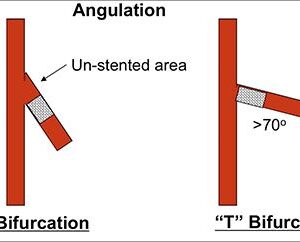
Description: Percutaneous coronary intervention involves a wide range of complexity, from relatively straightforward Type A lesions in a C-shaped right coronary artery to much more complex anatomy. Ostial lesions and bifurcation lesions remain subsets that continue to challenge current interventional strategies and that can have increased risks of subacute closure and/or restenosis. Note: This course is eligible for ACPE credit.
Authors: Michael Ragosta III, MD
Credit/contact hours: .75
Estimated time to complete: 40 minutes
Publication Date: March 8, 2018
Expiration Date: March 7, 2027
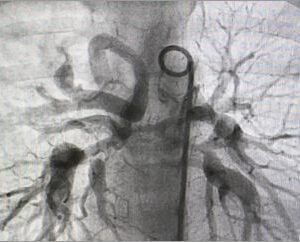
Description: Aortography and ventriculography are more specialized imaging techniques used in the cardiac catheterization laboratory for specific diagnoses and for specific indications. Ventriculography is an important diagnostic imaging modality to assess left ventricular function, regional wall motion abnormalities, severity of mitral regurgitation, certain congenital and shunt conditions such as ventricular septal defect.
Authors: Michael Ragosta III, MD
Credit/contact hours: .75
Estimated time to complete: 40 minutes
Publication Date: March 8, 2018
Expiration Date: March 7, 2027
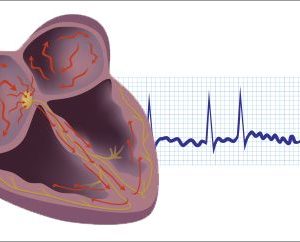
Description: Atrial fibrillation is a common condition and occurs in otherwise healthy individuals or can be associated with a wide range of medical and/or cardiac conditions. For this reason, the management of patients with atrial fibrillation is complex and must be customized to individual patient circumstances. Note: This course is eligible for ACPE credit.
Authors: Amy West Pollak, MD
Credit/contact hours: .5
Estimated time to complete: 30 minutes
Publication Date: March 8, 2018
Expiration Date: March 7, 2027
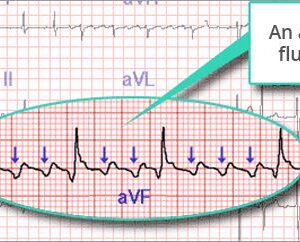
Description: Atrial flutter is now known to be a "macro-reentrant" atrial tachycardia occurring in a counter-clockwise direction within the right atrium. The atrial rate is typically between 250 and 350 beats per minute. In general, the AV node conducts every other beat resulting in ventricular rates which are 50% of the atrial rate. Note: This course is eligible for ACPE credit.
Authors: Andrew E Darby, MD
Credit/contact hours: .5
Estimated time to complete: 30 minutes
Publication Date: March 8, 2018
Expiration Date: March 7, 2027
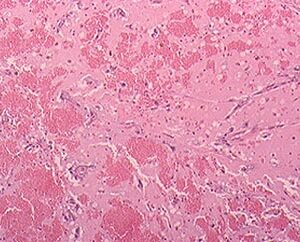
Description: Cardiac tumors are unusual, but atrial myxomas are the most common benign cardiac tumors of the heart. Presentations can be highly variable, ranging from signs and symptoms of mitral valve disease (such as dyspnea) to embolic phenomenon, right heart failure, or rarely myocardial infarction or sudden death.
Authors: Patrick McNair, MD and Lawrence W Gimple, MD
Credit/contact hours: 0.5
Estimated time to complete: 30 minutes
Publication Date: December 6, 2018
Expiration Date: December 6, 2027
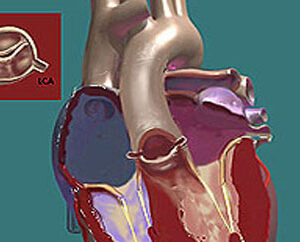
Description: With the development of modern pediatric interventional and surgical approaches, many patients with congenital heart disease live full, long lives. Many patients undergo procedures during childhood, while other patients are initially discovered to have congenital heart disease as adults. In these modules, we will learn about acyanotic heart conditions. Note: This course is eligible for ACPE credit.
Authors: Michael Ragosta III, MD and Andrew Bishop, MD FACC
Credit/contact hours: .25
Estimated time to complete: 15 minutes
Publication Date: May 10, 2018
Expiration Date: May 9, 2027

Description: In this exercise, we identify a Top 10 List of Cardiovascular Emergencies that a physician should understand in caring for acutely ill patients. Note: This course is eligible for ACPE credit.
Authors: Dr. Lawrence W. Gimple
Credit/contact hours: .5 hours
Estimated time to complete: 30 minutes
Publication Date: March 8, 2018
Expiration Date: March 7, 2027
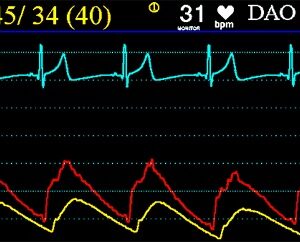
Description: Less common conditions such as coarctation of the aorta, persistence of the left superior vena cava, right-sided aortic arch, and dextrocardia are occasionally encountered during diagnostic cardiac catheterization and require basic knowledge of anatomy to make the correct diagnosis.
Authors: Michael Ragosta III, MD and Andrew Bishop, MD FACC
Credit/contact hours: .5
Estimated time to complete: 30 minutes
Publication Date: May 10, 2018
Expiration Date: May 9, 2027
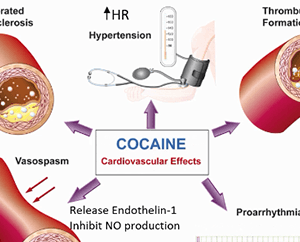
Description: Acute ST-Elevation Myocardial Infarction (STEMI) is a common presentation but can occur in many complex clinical situations. Note: This course is eligible for ACPE credit.
Authors: Elona Rrapo Kaso, MD and Lawrence W Gimple, MD
Credit/contact hours: 0.5
Estimated time to complete: 30 minutes
Publication Date: December 6, 2018
Expiration Date: December 6, 2027
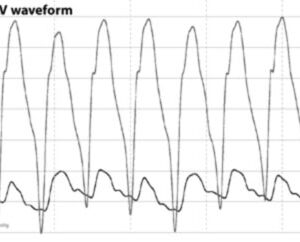
Description: Hemodynamic pressure recordings can provide valuable information regarding cardiac physiology and pathology. It is important to avoid artifacts and errors in the recording of high-quality pressure tracings. In this exercise, we will review common errors and methods to identify and avoid misleading information.
Authors: Michael Ragosta III, MD and Lawrence W Gimple, MD
Credit/contact hours: .25
Estimated time to complete: 20 minutes
Publication Date: March 8, 2018
Expiration Date: March 7, 2027

Description: In this lecture, Dr. Ragosta provides the background information needed for cardiology attendings, fellows, and/or nurse practitioners to participate in the informed consent process. Note: This course is eligible for ACPE credit.
Authors: Michael Ragosta III, MD
Credit/contact hours: .75
Estimated time to complete: 50 minutes
Publication Date: March 8, 2018
Expiration Date: March 7, 2027
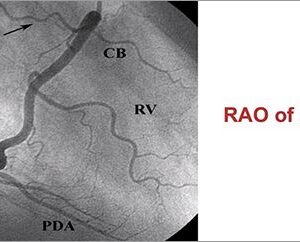
Description: The cardiac catheterization laboratory has changed dramatically over the years as the focused has expanded from hemodynamic evaluation to include an extraordinary range of imaging modalities and rapidly increasing opportunities for therapeutic intervention. Note: This course is eligible for ACPE credit.
Authors: Michael Ragosta III, MD
Credit/contact hours: 1.0
Estimated time to complete: 60 minutes
Publication Date: March 8, 2018
Expiration Date: March 7, 2027
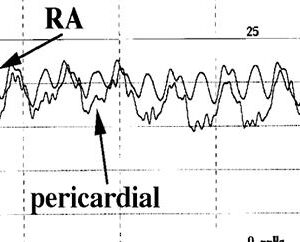
Description: In many conditions, pericardial effusions can accompany pericardial disease. These effusions can be small and benign, or larger and hemodynamically significant depending on pericardial compliance and other factors.
Authors: Michael Ragosta III, MD
Credit/contact hours: .5
Estimated time to complete: 30 minutes
Publication Date: March 14, 2019
Expiration Date: March 14, 2028
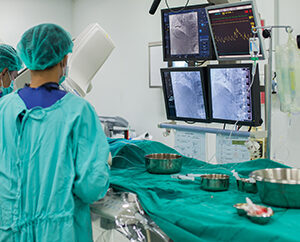
Description: The prosthetic valve has hemodynamic features that can vary from the normal cardiac valve both by echocardiographic assessment and by hemodynamic assessment in the cath lab. Prosthetic valves have typical appearances under fluoroscopy both in terms of valve movement and leaflet mobility.
Authors: Michael Ragosta III, MD
Credit/contact hours: .5
Estimated time to complete: 20 minutes
Publication Date: Nov 6, 2019
Expiration Date: Nov 6, 2025
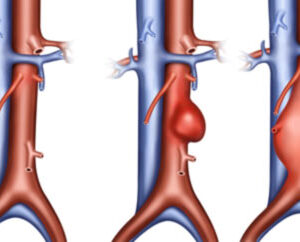
Description: Not all STEMI cases are straightforward and interventional complexities are common, require experienced operators, and interventions are often nuanced and challenging. Note: This course is eligible for ACPE credit.
Authors: Alan Johnson, MD and Lawrence W. Gimple, MD
Credit/contact hours: .5
Estimated time to complete: 30 minutes
Publication Date: March 8, 2018
Expiration Date: March 7, 2027

Description: Exercise and Sports Participation with Aortic Stenosis: Who and How Much? This course tackles the question of "who and how much" in regards to exercise and sports participation among patients with aortic stenosis (AS).
Authors: Peter Dean, MD
Credit/contact hours: .5
Estimated time to complete: 30 minutes
Publication Date: May 9, 2019
Expiration Date: May 9, 2028
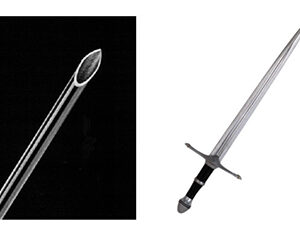
Description: Femoral arterial and venous access have been a mainstay of diagnostic and interventional cardiology for decades.
Authors: .75
Credit/contact hours: .75
Estimated time to complete: 45 minutes
Publication Date: Sept 4, 2019
Expiration Date: Sept 3, 2025

Description: This course covers how fetal cardiomegaly is measured and assessed, the various etiologies of fetal cardiomegaly, and the diversity of the fetal and the postnatal outcomes, while emphasizing how important early recognition and diagnosis is for the patient's outcome. Note: This course is eligible for ACPE credit.
Authors: Daniel S. Schneider, MD
Credit/contact hours: .5
Estimated time to complete: 30 minutes
Publication Date: May 9, 2019
Expiration Date: May 9, 2028
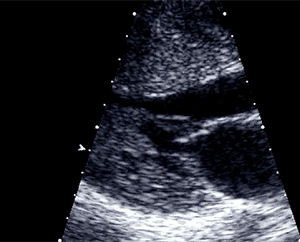
Description: This tutorial will review the hemodynamic, angiographic, and clinical features of hypertrophic cardiomyopathy and related conditions. Hypertrophic cardiomyopathy is a heterogeneous group of disorders that are characterized by hypertrophy in the absence of physiologic compensation. Note: This course is eligible for ACPE credit.
Authors: Michael Ragosta III, MD
Credit/contact hours: .75
Estimated time to complete: 45 minutes
Publication Date: December 6, 2018
Expiration Date: December 6, 2027

Description: Many medical students find studying the ECG to be a tedious and daunting task. This should not be the case. Note: This course is eligible for ACPE credit.
Authors: Dr. Lawrence W. Gimple
Credit/contact hours: .5
Estimated time to complete: 50 minutes
Publication Date: March 8, 2018
Expiration Date: March 7, 2027
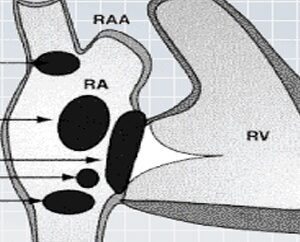
Description: Atrial septal defects (ASD) are among the more commonly diagnosed congenital defects and can present at any age from infancy to late in life. Significant advances in imaging, interventional cardiology, and cardiac surgery allow for an array of potential therapies depending on the location of the defect. Note: This course is eligible for ACPE credit.
Authors: Michael Ragosta III, MD and Andrew Bishop, MD FACC
Credit/contact hours: .75
Estimated time to complete: 45 minutes
Publication Date: May 10, 2018
Expiration Date: May 9, 2027
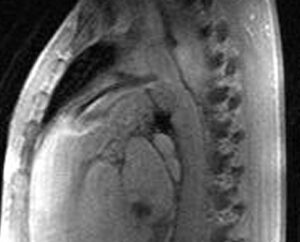
Description: The ductus arteriosus is an integral part of the normal fetal circulation allowing blood to bypass the fetal heart in utero. Failure of the ductus to close at birth can lead to a variety of clinical presentations depending on the duration, size, and co-existing congenital abnormalities. PDA accounts for 10% of congenital heart defects but is relatively rare in adults. Note: This course is eligible for ACPE credit.
Authors: Michael Ragosta III, MD and Andrew Bishop, MD FACC
Credit/contact hours: .25
Estimated time to complete: 15 minutes
Publication Date: May 10, 2018
Expiration Date: May 9, 2027
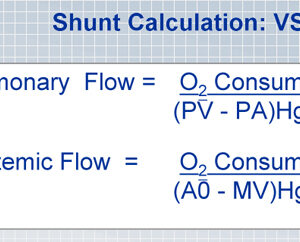
Description: Defects in the interventricular septum can be large or small and may be congenital or acquired, as in patients after myocardial infarction. The ventricular septum has a superior membranous portion and an inferior muscular component and each may be associated with abnormalities. The defects are among the most common congenital cardiac anomalies in infants and children. Note: This course is eligible for ACPE credit.
Authors: Michael Ragosta III, MD and Andrew Bishop, MD FACC
Credit/contact hours: .25
Estimated time to complete: 20 minutes
Publication Date: May 10, 2018
Expiration Date: May 9, 2027

Description: The cardiac catheterization laboratory is the traditional venue for measuring and defining a patient’s hemodynamics. In this course, we will describe the methods and pitfalls of hemodynamic assessment. Note: This course is eligible for ACPE credit.
Authors: Michael Ragosta III, MD and Lawrence W Gimple, MD
Credit/contact hours: .25
Estimated time to complete: 10 minutes
Publication Date: March 8, 2018
Expiration Date: March 7, 2027

Description: Mitral regurgitation can result from a number of different mechanisms and can be life threatening when severe. In some patients, mitral regurgitation progresses slowly over many years and the appropriate timing of surgery must be determined. In other patients, such as the patient with mitral regurgitation complicating an acute MI, the onset can be abrupt, can lead to cardiogenic shock, and must be treated as a cardiac surgical emergency. Note: This course is eligible for ACPE credit.
Authors: Dr. Andrew E. Darby
Credit/contact hours: .25 hours
Estimated time to complete: 20 minutes
Publication Date: March 8, 2018
Expiration Date: March 7, 2027
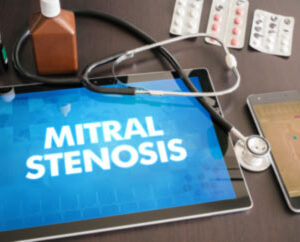
Description: Mitral stenosis typically results from rheumatic fever and is a late manifestation of the condition known as rheumatic heart disease. Mitral stenosis is often associated with massive enlargement of the left atrium which results in atrial fibrillation – patients with mitral stenosis are therefore at significant risk of thromboembolic complications. Note: This course is eligible for ACPE credit.
Authors: Rohit Malhotra, MD, FACC
Credit/contact hours: .25
Estimated time to complete: 15 minutes
Publication Date: March 8, 2018
Expiration Date: March 7, 2027

Description: In this exercise, we review the causes of mitral stenosis and focus on the clinical presentation, physical exam, and natural history. Conditions associated with mitral stenosis are discussed. Note: This course is eligible for ACPE credit.
Authors: Michael Ragosta III, MD
Credit/contact hours: .5
Estimated time to complete: 30 minutes
Publication Date: Apr 21, 2020
Expiration Date: Apr 21, 2026

Description: This lesson focuses on the hemodynamic measurements made in the cardiac catheterization laboratory in the evaluation of mitral stenosis. Measurement of simultaneous left atrial and left ventricular pressures during diastole is the most accurate method to hemodynamically assess the mitral valve gradient.
Authors: Michael Ragosta III, MD
Credit/contact hours: .5
Estimated time to complete: 30 minutes
Publication Date: Apr 21, 2020
Expiration Date: Apr 21, 2026
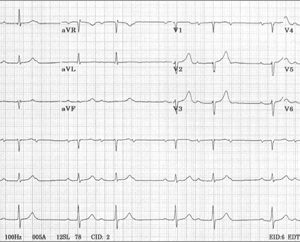
Description: In the modern era, implantable medical devices are increasingly common and many cardiac patients receive pacemakers or implantable cardioverter defibrillators (ICDs). These devices can greatly improve symptoms, treat some aspect of congestive heart failure, and can prevent sudden cardiac death in many circumstances. Note: This course is eligible for ACPE credit.
Authors: Pamela Mason, MD
Credit/contact hours: .25 hours
Estimated time to complete: 20 minutes
Publication Date: March 8, 2018
Expiration Date: March 7, 2027
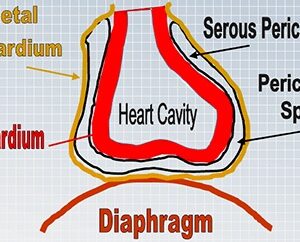
Description: Pericardial diseases are a diverse group of disorders that relate to both cardiac and non-cardiac processes. With the increasing prevalence of heart surgery, interventional procedures, immunosuppression, and radiation therapy, these conditions are becoming increasingly common. Note: This course is eligible for ACPE credit.
Authors: Michael Ragosta III, MD
Credit/contact hours: .25
Estimated time to complete: 20 minutes
Publication Date: March 14, 2019
Expiration Date: March 14, 2028
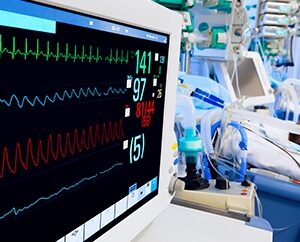
Description: Pediatric patients have unique physiology that rapidly changes from fetal to infant ages and then throughout childhood. These physiologic changes are reflected by changes in the electrocardiogram. In this lesson, we will review the basic principles and findings on the pediatric electrocardiogram. Note: This course is eligible for ACPE credit.
Authors: Jeff Vergales MD, Jeremy Middleton MD, Michael McCulloch MD
Credit/contact hours: .75
Estimated time to complete: 45 minutes
Publication Date: March 19, 2020
Expiration Date: March 19, 2026

Description: Pediatric patients have unique physiology that rapidly changes from fetal to infant ages and then throughout childhood. These physiologic changes are reflected by changes in the electrocardiogram. In this series of case presentations, you will learn to identify common conditions that are reflected in the pediatric ECG. Note: This course is eligible for ACPE credit.
Authors: Jeff Vergales, MD, Jeremy Middleton, MD, Michael McCulloch, MD
Credit/contact hours: .5
Estimated time to complete: 30 minutes
Publication Date: March 19, 2020
Expiration Date: March 19, 2026

Description: Maternal mortality rates are increasing in the United States, driven in part by women with congenital heart disease (CHD) becoming pregnant. These patients require exceptional care, but can still have a good outcome if managed carefully. Note: This course is eligible for ACPE credit.
Authors: Donald J. Dudley, MD
Credit/contact hours: .75
Estimated time to complete: 45 minutes
Publication Date: Sept 4, 2019
Expiration Date: Sept 3, 2025
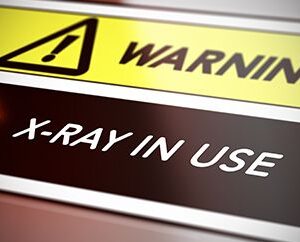
Description: The risks of cath lab radiation exposure and how to reduce them.
Authors: Dr. Michael Ragosta III
Credit/contact hours: .5
Estimated time to complete: 40 minutes
Publication Date: March 8, 2018
Expiration Date: March 7, 2027
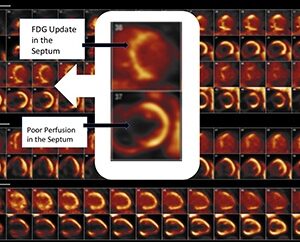
Description: This is a challenging case of a patient presenting with heart failure and ventricular tachycardia. A careful chart review showed that this patient had a history of breast cancer and lymphadenopathy. Note: This course is eligible for ACPE credit.
Authors: Elona Rrapo Kaso, MD
Credit/contact hours: .5
Estimated time to complete: 30 minutes
Publication Date: July 9, 2019
Expiration Date: July 9, 2025

Description: Conditions other than hypertrophic cardiomyopathy or valvular aortic stenosis may be associated with obstruction and gradients involving the left ventricle and aorta. Note: This course is eligible for ACPE credit.
Authors: Michael Ragosta III, MD
Credit/contact hours: .25
Estimated time to complete: 15 minutes
Publication Date: Apr 21, 2020
Expiration Date: Apr 21, 2026
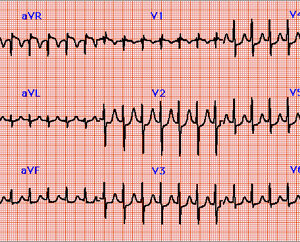
Description: Supraventricular tachycardia may be defined as an abnormally rapid heart rhythm originating above the ventricles, often, but not always, with a narrow QRS complex on the ECG. Note: This course is eligible for ACPE credit.
Authors: Dr. Andrew E. Darby
Credit/contact hours: .5
Estimated time to complete: 30 minutes
Publication Date: March 8, 2018
Expiration Date: March 7, 2027
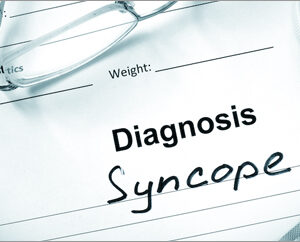
Description: Syncope is a relatively common occurrence in the general population and can represent a benign vaso-vagal response or a life-threatening cardiac arrhythmia or other severe cardiac condition. Because of the broad differential diagnosis, the evaluation and management of the patient can be time-consuming and complex. Note: This course is eligible for ACPE credit.
Authors: Dr. Amy West Pollak
Credit/contact hours: .25
Estimated time to complete: 20 minutes
Publication Date: March 8, 2018
Expiration Date: March 7, 2027
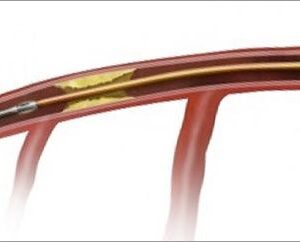
Description: This case analysis regards a patient with multivessel coronary heart disease who undergoes coronary angiography. Coronary artery bypass surgery is recommended. The patient undergoes additional evaluation with Fractional Flow Reserve (FFR) to define the hemodynamic significance of several of the coronary stenoses. Note: This course is eligible for ACPE credit.
Authors: Adrian Loffler, MD
Credit/contact hours: 1.0
Estimated time to complete: 60 minutes
Publication Date: March 8, 2018
Expiration Date: March 7, 2027
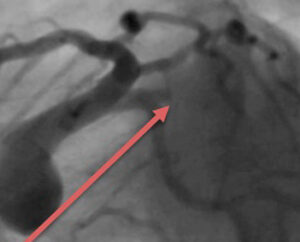
Description: It is well established that prompt reperfusion therapy within the first six hours of MI symptom onset can significantly reduce mortality and morbidity after MI, and reperfusion therapy with PCI/stenting or fibrinolysis is well established. However, it is not uncommon that a patient will undergo coronary angiography 12 or even 24 hours after MI, where a totally occluded artery is identified at that point in time. Note: This course is eligible for ACPE credit.
Authors: Lawrence Gimple, MD
Credit/contact hours: .25
Estimated time to complete: 15 minutes
Publication Date: May 10, 2018
Expiration Date: May 9, 2027
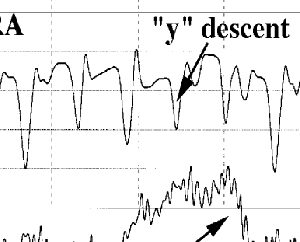
Description: In patients with a diagnosis of pericardial effusion, especially when accompanied by symptoms or signs of cardiac tamponade, a number of therapeutic interventions are possible. Note: This course is eligible for ACPE credit.
Authors: Michael Ragosta III, MD
Credit/contact hours: .5
Estimated time to complete: 30 minutes
Publication Date: March 14, 2019
Expiration Date: March 14, 2028
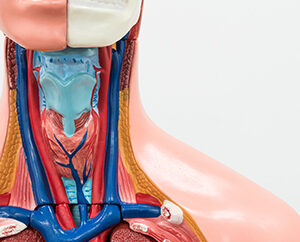
Description: In modern interventional cardiology, the central circulation is accessed for many reasons, ranging from coronary imaging and intervention, to hemodynamic measurement, myocardial biopsy, valvular interventional procedures, diagnosis and treatment of congenital heart disease, and multiple other indications. Note: This course is eligible for ACPE credit.
Authors: Michael Ragosta III, MD
Credit/contact hours: .5
Estimated time to complete: 30 minutes
Publication Date: Nov 6, 2019
Expiration Date: Nov 6, 2025
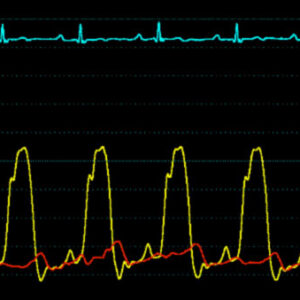
Description: Recording hemodynamic pressures from the left atrium can be straightforward in the presence of certain abnormalities such as atrial septal defect or patent foramen ovale, but will require trans-septal puncture in many patients. Note: This course is eligible for ACPE credit.
Authors: Michael Ragosta III, MD and Lawrence W Gimple, MD
Credit/contact hours: .25
Estimated time to complete: 20 minutes
Publication Date: March 8, 2018
Expiration Date: March 7, 2027
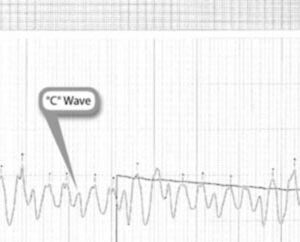
Description: Many cardiac and critical care patients undergo right-heart catheterization to measure pressures and oxygen saturations in the right-sided cardiac chambers. In addition to the absolute value of these measurements, there is significant information about cardiac physiology and pathology that can be gained by examining the various waves and morphologies of the pressure recordings. Note: This course is eligible for ACPE credit.
Authors: Michael Ragosta III, MD and Lawrence W Gimple, MD
Credit/contact hours: .25
Estimated time to complete: 20 minutes
Publication Date: March 8, 2018
Expiration Date: March 7, 2027
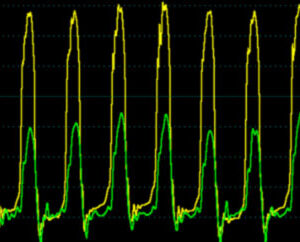
Description: In this lesson, we will review the principles of analysis of high-quality hemodynamic pressure recordings. We will focus on respiratory effects and simultaneous pressure recordings from left-sided and right-sided chambers. Note: This course is eligible for ACPE credit.
Authors: Michael Ragosta III, MD and Lawrence W Gimple, MD
Credit/contact hours: .25
Estimated time to complete: 20 minutes
Publication Date: March 8, 2018
Expiration Date: March 7, 2027
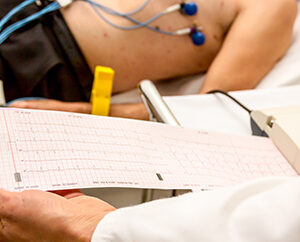
Description: Tachyarrhythmias can present a significant clinical challenge. Patients presenting with fast heart rate may be unstable with chest pain, hypotension, or with myocardial ischemia, or they may be completely asymptomatic. The initial approach typically involves distinguishing between tachycardias with a wide QRS complex ("wide complex tachycardias") versus those with a narrow QRS complex ("narrow complex tachycardias"). Narrow complex tachycardias are always supra-ventricular in origin. Wide complex tachycardias are more complex as they may arise from supra-ventricular sources and conduct aberrantly (supra-ventricular tachycardia with aberrancy) or they may arise from ventricular sources (ventricular tachycardia). In this case, we will examine a patient presenting with tachycardia and work our way through a differential diagnosis. Note: This course is eligible for ACPE credit.
Authors: Nishaki Mehta, MD, Ceshae Harding, MD, Araba Ofosu-Somuah, MD
Credit/contact hours: .5
Estimated time to complete: 30 minutes
Publication Date: Apr 21, 2020
Expiration Date: Apr 21, 2026

CardioVillage provides continuing education (CE) credit in cardiovascular medicine.
CardioVillage
PO Box 6449
Charlottesville, VA 22906
support@scitent.com
Need assistance with CE certificates prior to March 8, 2018? Contact our Service Center at support@scitent.com.
© 2025 CardioVillage. by the Rector and Visitors of the University of Virginia